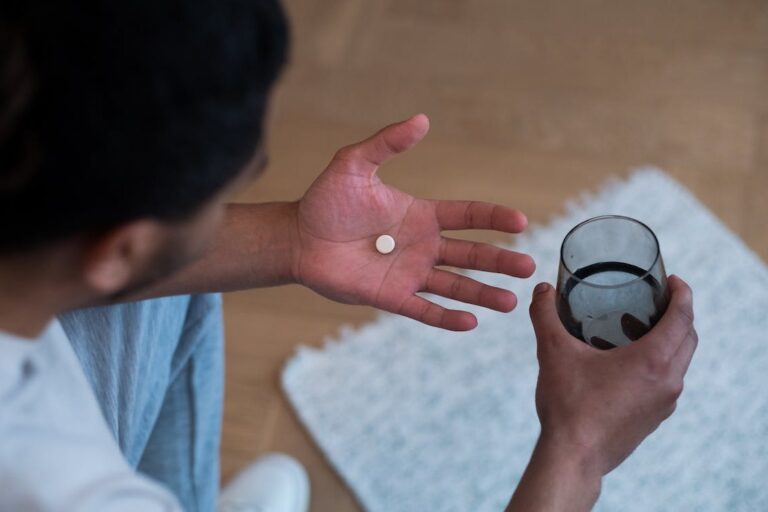When you take the courageous step towards seeking addiction treatment, one crucial aspect that often demands your attention is navigating the complexities of medical aid coverage. In South Africa, where the healthcare system is multifaceted, understanding how to advocate for your addiction treatment needs with medical aid can make a significant difference in your recovery journey.
Understanding Your Coverage:
The first step in advocating for your addiction treatment needs is to understand your medical aid coverage thoroughly. You may be pleasantly surprised to discover that many medical aids do offer some level of coverage for addiction treatment, including in-patient rehab and outpatient counseling services. However, the extent of coverage can vary widely, so it’s essential to review your policy carefully.
Once you’ve familiarized yourself with your policy, don’t hesitate to reach out to your medical aid provider. They can provide you with detailed information about your coverage and help clarify any uncertainties. Remember, your medical aid provider should be a valuable resource on your journey to recovery, and open communication with them is key.
Navigating Pre-Authorizations and Approvals:
In the realm of addiction treatment, pre-authorizations and approvals are often necessary steps. When considering in-patient rehab or specialized treatment programs, your medical aid provider may require pre-authorization, which means they approve the treatment in advance. This is where proactive advocacy plays a crucial role.
Advocating for your addiction treatment needs involves effectively communicating with your medical aid provider. Be prepared to provide documentation, such as assessments and treatment plans from your healthcare professionals, to support your case. Clearly articulate the necessity of the treatment and how it aligns with your recovery goals.
Additionally, understand the appeal process if your request for coverage is initially denied. It’s not uncommon for claims to face initial rejections, but persistence can often yield positive outcomes. Know your rights as a policyholder and be prepared to appeal if necessary.
Comparing Two Lesser-Known Aspects:
- Treatment Continuum: While medical aids often cover in-patient rehab, there may be gaps in coverage when it comes to the broader treatment continuum. Outpatient therapy, aftercare programs, and ongoing support are essential components of addiction recovery, and it’s essential to ensure your medical aid covers these aspects adequately. Be sure to inquire about coverage for continued care beyond the initial rehab stay.
- Mental Health Parity: South Africa has made strides in recognizing the importance of mental health and addiction treatment. However, there can still be disparities in how these services are covered compared to physical health treatments. Advocacy for mental health and addiction treatment parity is an ongoing effort. Understand your rights in this regard and advocate for equal coverage for mental health and addiction services.

Controversies surrounding advocating for your addiction treatment needs with medical aid:
- Coverage Limitations: One of the primary controversies is the limitations in coverage. While many medical aid providers do offer coverage for addiction treatment, the extent of coverage can vary widely. Some policies may limit the number of days or sessions covered, potentially leaving individuals with insufficient support for their recovery journey.
- Stigma and Discrimination: Another significant controversy is the persistence of stigma and discrimination related to addiction and mental health. Some individuals have reported facing resistance from medical aid providers when seeking coverage for addiction treatment. This can be attributed to the lingering stigma surrounding addiction, which may lead to biased decisions about coverage.
- Access Barriers: In some cases, individuals may encounter barriers to access addiction treatment through their medical aid due to administrative complexities. The process of obtaining pre-authorizations, approvals, and navigating appeals can be cumbersome and time-consuming. This can delay essential treatment and potentially hinder recovery efforts.
- Mental Health Parity: The issue of mental health parity remains contentious. While there has been progress in recognizing the importance of mental health and addiction treatment, achieving true parity in coverage compared to physical health treatments remains a challenge. This ongoing controversy highlights the need for continued advocacy efforts.
- Provider Networks: Medical aid providers often have specific networks of healthcare providers and treatment centers. The controversy arises when individuals find that their preferred treatment center or healthcare professional is out of network, potentially leading to additional out-of-pocket expenses or limited choices in care.
- Cost Considerations: The cost of addiction treatment, even with medical aid coverage, can be a significant financial burden for many individuals and families. Controversy surrounds the affordability of comprehensive addiction treatment options and the potential for individuals to forego necessary care due to financial constraints.
As you navigate the sometimes challenging terrain of advocating for your addiction treatment needs with medical aid, remember the words of Winston Churchill: “Success is not final, failure is not fatal: It is the courage to continue that counts.” Your journey toward recovery is a testament to your courage, determination, and resilience.
In the context of rehab care, your advocacy is a beacon of hope not only for yourself but also for others walking a similar path. By actively engaging with your medical aid provider, you not only secure the support you need but also contribute to breaking down barriers and reducing the stigma surrounding addiction treatment.
Your perseverance in advocating for comprehensive addiction treatment is a vital step towards creating a more inclusive and supportive healthcare system. It sets the stage for a future where individuals seeking recovery will find the doors of opportunity wide open. So, with unwavering determination and the knowledge that your efforts can make a difference, continue to advocate for your needs and inspire positive change in the realm of addiction treatment and rehab care.










